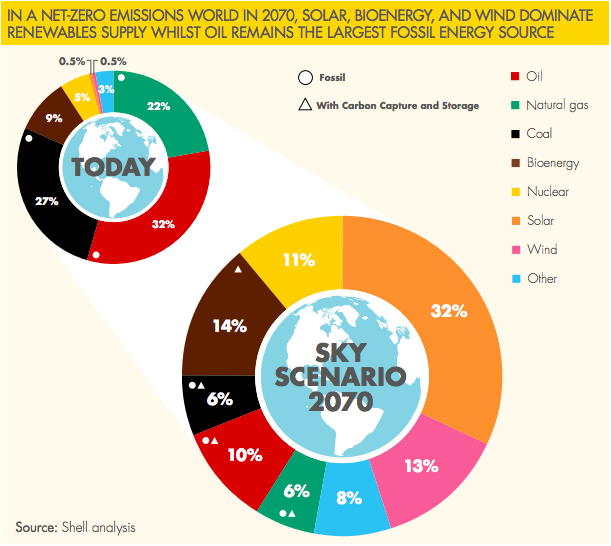SUMMARY
This is AI generated summarization, which may have errors. For context, always refer to the full article.


SINGAPORE –The Asia Pacific region has one of the toughest roles to play in meeting the Paris Agreement. Current investments in its energy sector could tip the scales: Asian cities could either add or reduce global carbon emissions from energy.
“Cities in Asia are crucial in meeting the Paris Agreement. Why? Because cities here have a bigger range of development compared to cities in Europe and the United States,” said Jeremy Bentham, vice president for Shell’s Global Business Environment and head of Shell Scenarios, during the World Cities Summit in Singapore where Shell launched the Sky Scenario.
The landmark Paris Agreement signed by 195 member countries in 2015 is a legally-binding contract to limit global temperature increase by 1.5C above pre-industrial levels in hopes that it will mitigate the adverse impacts of climate change.
The period from 2019 to 2050, according to Bentham, is the period of the cities, and the early decades during this period are significant in shaping policies that could restructure energy systems and push forward sustainable investments.
However, many cities in Asia are not resilient. Megacities are often overwhelmed by burgeoning population growth and are bombarded with problems on pollution, waste management, and water treatment, among others.
“Local leaders have to think in the long-term,” Bentham explains. “Leaders have to realize that the decisions they make today have influences in the decades to come—and that’s very, very important when you talk about resilience, particularly climate resilience.”
That’s where the Sky Scenario come in: it provides a pragmatic perspective of the energy landscape in the next 50 years and presents possible pathways that could be adapted to better city planning.
“Sky is basically an optimistic outlook that looks at the nitty-gritty, concrete nature of how we can meet the obligations of the Paris Agreement,” shares Bentham. “It’s a social and technical tool to enable you to cull visions and create memories of the future.”
The chunk of the responsibility, however, rests on the shoulders of leaders around the world who dictate the pace of developments. Additionally, “peer pressure provides the push in response to the transparency framework embedded in the Paris Agreement,” Shell writes in Sky.
Challenging yet achievable
Although dubbed by critics as “ambitious” when it was released last March in the United States and Europe, Bentham believes that Sky is “achievable in a technical, industrial and affordability point-of-view.”
An important element of the Sky Scenario is electrification—production, access, and the transition of existing industries into sustainable options.
The transport sector, considered as one of the major emitters of greenhouses gases, will see a revolutionary shift to electric passenger vehicles. In 2017, the United Kingdom pledged to phase out the sale of internal combustion engine cars by 2040 and Sky anticipates that as early as 2030, the world will see that “more than half the global car sales are electric, extending to all passenger cars by 2050.”
Sky based electricity demands on population and economic growth while largely considering the goals identified by the Paris Agreement. It also assumes that countries will adapt efficiency measures to meet net-zero emission starting in 2020.

The scenario also looked at linked emissions trading systems, the potential decline in resource extraction due to a more efficient circular economy, and cheaper new technologies.
By 2070, Sky estimates the world population will be at 10 billion, with India as the most populous country in the world. This growth will drive energy peak demand for a decade until it plateaus by 2080.
The major change-makers in the energy transition: Biofuels and bio-feedstock in the transport sector; and hydrogen, nuclear, solar, and wind in the power generation sector.
WHAT HAPPENS IN THE SKY SCENARIO?
Reshaping Shell for the Energy Era

With annual investments over $25 billion, Bentham shares that the company is aware that its business decisions influence the world for many decades, especially on the environmental implications.
“We look at the main features, the main uncertainties and make decisions that are attractive and resilient against those different futures. So the scenarios are a core context for all the strategic positions that we make as a company,” he stressed out.
Starting as an oil and gas company in 1907 and establishing a base in the Philippines in 1914, Shell has been placed in a box: it’s only an oil company. But that has not been the case, according to Bentham.
Shell has expanded into power generation by investing on new energies like solar, biofuel, and hydrogen. The energy giant is also involved in power trading and is currently the second biggest power trader in North America.
“The world is changing. The world is transitioning and [Shell is] part of that change. We’re making sure that doesn’t go the way of the Dodo and become extinct,” he says, adding that Shell has removed itself from potential investments that could further exacerbate the adverse impacts of climate change.
Bentham admits that while they are expanding their markets due to customer demand, there is also a “reckoning” for cleaner energy, prompting a shift in the coal and oil dependent energy mix of the present.
“We’re trying to be at the forefront of both growth and mix. We are involved in all these areas because we want to be ahead of the game in serving our customers,” he shares.
That is predominantly why, he explains, Shell shares the Scenarios to catalyze engagements with industry pacers, government leaders and decision-makers, and energy-engaged individuals who are concerned about the world’s energy future.
“The real challenge is a socio-political challenge,” says Bentham. “Are we prepared to make the decisions that can help drive forward the more optimistic outlook of the Sky Scenario for the common good?” – Rappler.com
Add a comment
How does this make you feel?
There are no comments yet. Add your comment to start the conversation.